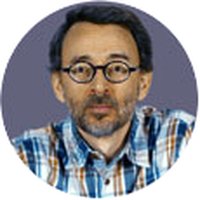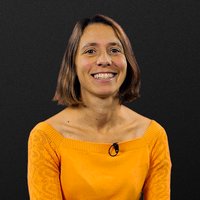Technological challenges of participatory smart cities
- Duration: 5 months
- Effort: 13 hours
- Pace: ~2h30/month
- Languages: English and french
What you will learn
At the end of this course, you will be able to:
- understand what is a smart city and the digital technologies supporting it
- identify the required skills to design, develop and deploy innovative services toward smarter cities
- picture new digital services for the urban environment while capturing the technologies they rely on
- apprehend the costs and impediments (both technological and societal) that may occur to deploy a new digital service in the city
- investigate public participation in the development of smart cities and the technological and societal challenges that emerge from it.
Please NOTE that this course is the english version of "Défis technologiques des villes intelligentes participatives" course, initially published and run on FUN-MOOC in 2016 and 2017. The research field and the technologies presented have evolved since then, but the proposed overview remains useful. For some concepts, updated additional resources are proposed.
Description
The course is a high level introduction to the constituents of the smart cities’ digital infrastructures, from the network up to the software layers. The proposed survey highlights the technical aspects to be taken into account to create practical services and to develop smarter cities involving citizen participation. In particular, it will impart information on privacy and interoperability aspects.
The course is designed for engineers or project leaders working for a company developing or willing to develop smart city projects involving citizen participation. It also addresses the challenges of professionals of a city government or a public institution who implement a smart city project which involves the deployment of digital technologies in the urban environment.
This course is available in “Archived Open” mode ": there is no animation of the teaching team (no forum or exercise noted like the quizzes) and the course does not issue any certificate of successful completion or certificate. However, you can access videos and text resources without limitation. This broadcasting mode therefore allows you, while waiting for the opening of a future "session animated ”, to train by having access to the main content.
Format
The course is organized in 5 modules.
Each module consists of 5 to 8 sequences, each containing a video of about 6 minutes, quizzes as well as course materials and additional activities or resources.
Video subtitles are provided in three languages: English, French and German.
Prerequisites
An interest in digital science and technology and a good computer science culture are required to understand the technical concepts addressed.
Assessment and certification
No attestation of achievement will be delivered for this course.
Course plan
Module 1 : Introduction: a perspective on smarter cities
Module 2 : Network infrastructures for participatory urban systems
Module 3 : Software infrastructures for participatory urban systems
Module 4 : Cloud-based urban data management
Module 5 : Privacy-preserving urban systems
Course team
Stéphane Grumbach
Categories
Aminesh Pathak
Categories
Hervé Rivano
Categories
Organizations
Partner
This course was realized by Inria with the support of EIT Digital.
Social Networks
Twitter : @InriaLearnLab - #MoocSmartCity
License
License for the course content

Attribution-NonCommercial-NoDerivatives
You are free to:
- Share — copy and redistribute the material in any medium or format
Under the following terms:
- Attribution — You must give appropriate credit, provide a link to the license, and indicate if changes were made. You may do so in any reasonable manner, but not in any way that suggests the licensor endorses you or your use.
- NonCommercial — You may not use the material for commercial purposes.
- NoDerivatives — If you remix, transform, or build upon the material, you may not distribute the modified material.
License for the content created by course participants

Attribution-NonCommercial
You are free to:
- Share — copy and redistribute the material in any medium or format
- Adapt — remix, transform, and build upon the material
Under the following terms:
- Attribution — You must give appropriate credit, provide a link to the license, and indicate if changes were made. You may do so in any reasonable manner, but not in any way that suggests the licensor endorses you or your use.
- NonCommercial — You may not use the material for commercial purposes.








